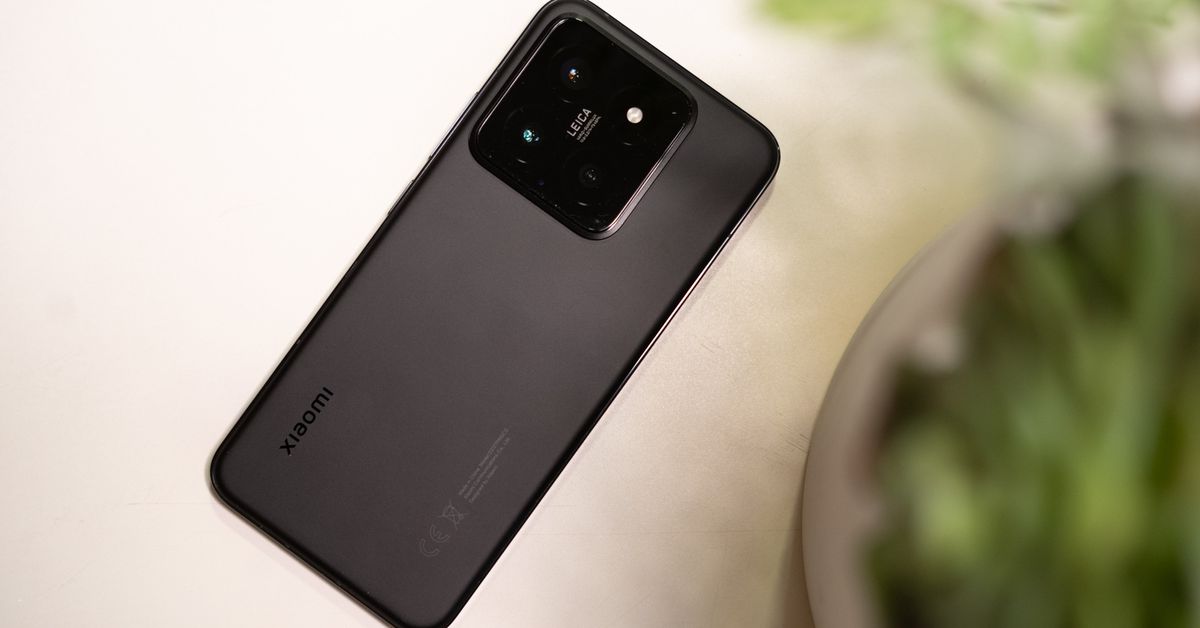The Xiaomi 14 and 14 Ultra are going global — minus the US

Xiaomi is using MWC to launch two of its flagships for a global audience — though not including the US, as usual. The Xiaomi 14 and 14 Ultra have already been announced in China, and today they’re on center stage with tweaked designs and camera-forward feature sets. They’re available to order starting today; the 14 Ultra will cost €1,499 (about $1624) and the 14 starts at €999 (about $1082).
The Xiaomi 14 covers the flagship basics, with a smaller 6.36-inch screen — now an LTPO 120Hz panel for smooth scrolling and power efficiency — and comes with more modest camera specs, at least by comparison to the 14 Ultra’s a 6.73-inch, 120Hz 1440p panel and 1-inch-type main camera. Go big or go all out, I guess.
The 14 Ultra was officially unveiled in China just a few days ago, but at its global launch event we’ve gathered a few more details about what will surely be a contender for the best camera phone of 2024. The main camera uses the new 1-inch-type Sony LYT-900 sensor also seen on the Oppo Find X7 Ultra, and includes the variable aperture system introduced on the Xiaomi 14 Pro (which launched alongside the 14 in China back in October, but isn’t part of today’s announcement).
Rather than the fixed aperture most smartphone cameras use, the 14 Ultra’s can open up or close down with 1,024 stops between f/1.63 and f/4.0. We got a demo at a pre-launch event just outside of Barcelona, and sure, you can see the tiny aperture stopping up and down. Use cases for this feature seem to be very slim — even at its widest setting, the lens behaves more like an f/4.0 on a full-frame camera in terms of depth of field. Stopping it down even further seems like a pointless exercise, but I witnessed the aperture moving and can confirm it works.
The Ultra follows Samsung Galaxy S24 Ultra’s lead and includes not one but two telephoto lenses: a 3.2x and a 5x, both of which are stabilized. And on the video side it takes a cue from the iPhone 15 Pro and incorporates log recording. That’s a very useful feature for a tiny percentage of people — it means you can use the phone in a multi-camera filming setup and color grade the results to match all the rest. You can also shoot 10-bit HDR in log for some additional post-processing flexibility.
I witnessed the aperture moving
The Xiaomi 14 Ultra moves away from the curved edges of last year and embracing 2014’s 2024’s hottest trend: flat edges. They’re easier to grip and there’s a gentle curve into the straight edge on both the front and back panels that keeps it comfy in your hand. You love to see it. Also in the what’s-old-is-new-again category? Xiaomi’s camera kit for the Ultra, which has been updated so the grip can act as an external battery for the phone. I love an accessory that does more than one job.
The Xiaomi 14 comes with a trio of 50-megapixel sensors in its main, wide, and 3.2x telephoto cameras — upgrading the 10-megapixel chip in last year’s telephoto camera. The square-shaped camera bump looks a little different this time around, losing the lines that divided it into four quadrants on the 13.
The Leica branding has been rotated 90 degrees so it looks at home in landscape orientation — the same way it appears on the Ultra. The back panel’s glass features a matte finish that feels sleek without being too slick, or maybe those flat edges make it feel more secure in my hand. Whatever it is, I like it.
As usual, Xiaomi’s Ultra flagship camera phone looks like an absolute unit, and as usual it’s disappointing that we’ll miss out on it in the US. While Samsung and Google have been leaning into AI camera features for their most recent updates, the most interesting hardware upgrades have come from Chinese phone makers, lead by Oppo and Xiaomi. If these things operate in cycles — like the return of flat edges — maybe the smartphones we see in the US are due for some serious hardware innovation in the near future, too.
Photography by Allison Johnson / The Verge
https://www.theverge.com/2024/2/25/24081932/xiaomi-14-ultra-global-europe-launch